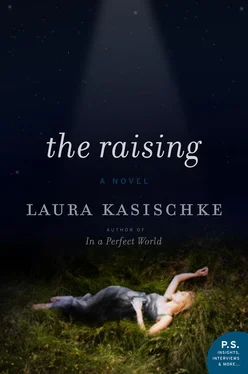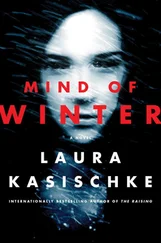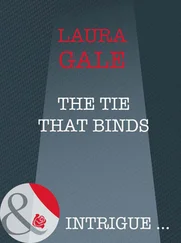But what Mira wanted the students to read was the part that followed this:
How the body was dug up, and how the body was found in her coffin, a year after the girl’s death, good as new. Her flesh was pink. Her hair had grown luxuriously around her shoulders. Her mouth was red, filled with blood. Her teeth had grown, and they glistened. Only her clothes had rotted away, revealing, of course, her beautifully gleaming breasts.
The village then managed to engage, at great expense, a cement truck to back up to the grave and fill it in, and the girl, whose name was Etta, never walked through the village again, and the farm accidents mysteriously drew to a halt—a fact the villagers attributed to the cementing-in of this tomb, not to the fact that their agricultural lifestyle was, within a few years, completely eradicated when a cardboard box factory moved into the village.
Melvin, the author, had been an ancient professor at Mira’s undergraduate institution and had given her the only B she’d ever received in college, but she still thought his was a brilliant analysis of the superstitions of the period and the move from an agrarian to an urban culture that fueled them. This story of Etta, he said in the Handbook , was the last real “vampire” story the world would ever know. In only another year or two, all the young adults who might have died tilling the land or harvesting the grain were working in that box factory or in shops in some Soviet metropolis, and the funerary traditions were forever changed. Instead of simple burials in wooden coffins in the churchyard, the whole commercial funeral business moved in, complete with embalming and sealed tombs and caskets that cost more than most families in the area made in a year.
“It’s a good book,” Mira said to Perry, handing it back to him. “I’m glad you thought to check it out.”
“I’ve read all the articles,” he said, “that you assigned, and—”
“Those aren’t assignments ,” Mira said. “That’s the suggested list. That’s for supplemental research.”
“I know,” Perry said. “But…” He shook his head, and then he held up one of the photos of “Etta.” He’d had the page bookmarked. Mira looked at it and nodded.
It was possible, she realized, that this student was mentally ill. It was far from unusual. There were always mentally ill students, especially in the Honors College. Intelligence and ambition went hand in hand, it seemed, with some kinds of delusion. These days, too, Mira found that students who were perhaps only minimally depressed (and how many smart twenty-year-olds weren’t depressed?) had been medicated by their family doctors into a state of either apathetic insensibility or manic excitement. These kids carried their bottles of Klonopin and Xanax from class to class, and swigged their pills down by the handfuls with their energy drinks. Who knew what this particular kid might be taking, especially if he had, as he claimed, been close friends with Nicole Werner?
Mira nodded at the book, leaned forward, and considered the photo. The small gray girl in the corner was dashing out of out it while a grim-looking family stared solemnly into the camera, oblivious. Although it was 1952, this photograph was black and white, and there was an aura of antiquated severity about it that made it seem more like an image from the late 1800s. But Mira had been to villages near this one, and even in the mid-nineties, in broad daylight, in the spring, in real life, there was always something black and white about the places and the people, as if their joyless lives had drained the color out of the world around them.
She looked from the photograph to her student. His brow was furrowed. “Yes?” she said.
“I read the whole essay,” he said, “and the author’s analysis. And I understand what he’s saying about the cultural context, and the societal changes, and the folklore, but—” He stopped, seeming to search for words. He closed the book.
“But what?” Mira asked.
He reached into his backpack again, and unfolded a copy of the student newspaper on his lap. It was the front-page article that had run about Nicole Werner a few days after the accident. On one side of the page there was the now-familiar senior portrait of Nicole with a warm halo of studio light pouring over her blond hair, and beside it a photograph of the memorial orchard-planting that took place at her sorority. In that photograph, a group of slender sorority sisters in black dresses and sunglasses held one another’s hands, heads bowed, around one of the blooming cherry trees that had been planted. Perry Edwards pointed to this photograph, his finger on the tree—which looked, even in miniature and in black and white, like the lush icon of lost innocence it was meant to be. He slid his finger over the blossoms and then into the right-hand corner of the photo.
“Look,” he said.
Mira did.
There was nothing there.
She moved her eyes slowly from the newspaper back to Perry Edwards’s face, and shook her head.
“There’s a girl there,” he said.
Mira looked again, more closely—although by now she suspected where this was going, and that her hunch about mental illness had been right. She searched the grainy distance until, finally, just over the boy’s clean fingernail, she did see what looked like a gray figure of a girl moving out of the photograph.
She looked back at Perry, and shrugged. She said, “Okay. Maybe. Yes?”
Perry let the newspaper drop onto his lap, and then leaned over his backpack again and took a manila envelope out of it.
“I scanned the photo,” he said. “And then I enlarged it.” He reached into the envelope, took it out—glossy, gray, eight by twelve—and handed the photo to Mira. Now only the right-hand corner of the whole image remained—a few petals on a bough at the bottom, like a cloudy carpet, and, in the left-hand corner, the shining bumper of someone’s car parked in the sorority driveway—and, in the center of it all, the blurred girl.
She was wearing something filmy, either a mid-thigh-length dress or a shift over a miniskirt or shorts. Her arms were bare, and she was obviously in a hurry to get somewhere—one leg was bent behind her, like she was running. Her arms were swinging widely at her sides, or pumping. There was a flash of silver or gold around her wrist—a bracelet—and the side of her face had caught the sunlight, and the light obscured her features. Her blond hair was flowing behind her from her shoulders, lifted by a breeze or by her own momentum.
Certainly, from this distance, the girl looked like Nicole Werner, but so did half the other girls standing in the first photograph, in their black dresses, with their straight hair, holding one another’s hands.
So did half the girls on this campus, especially the sorority girls.
“Yes,” Mira said again, nodding, and handed it back to him.
She continued to nod as she tried to think carefully about what to say next. She’d made mistakes with students in the past, given them too much encouragement. She swallowed, and inhaled, and then said, “You’ve been through a terrible trauma. I understand that. I think, for that reason, this is not a class you should be taking right now. The material is too relevant , perhaps, at the moment, and it might be”—she used her hands to try to soften the word before it came out of her mouth, opening the hands on her lap—“ suggesting things to you.”
Perry Edwards nodded, but he didn’t look away. He seemed to have expected her to say this, and was neither disappointed nor insulted.
He inhaled, bit his lower lip for a second, and then he said, “I understand what you’re saying. But I’ve had this photograph since May. And there are other things.” He looked up to the ceiling, as if searching for the words, and then back at Mira. “Professor Polson, Nicole’s here. She’s still on this campus. I was here all summer. I’ve seen her.”
Читать дальше












